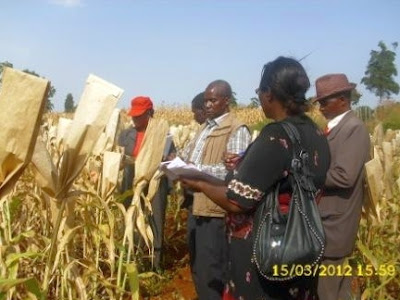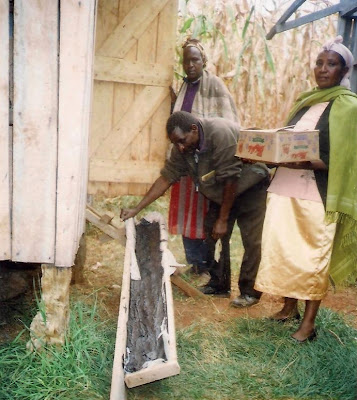The institute gives farmers information on sound farming practice and provides them with high-quality plant materials and seeds.
 |
| a field with sweet potatoes |
 |
| Christine admires the sweet potatoes that grow bigger when intercropped with cassava. |
 | |||
| the 4 a banana can grow 5 times as big as the commonly grown type |
 |
| sorghum field |
 |
| Note the paper bags that were put over the sorghum seed heads to protect them from birds. |
 |
| horticulture: groups of farmers grow flowers for export and market them cooperatively |
 |
| maintained Moringa plants |
 |
| plant nursery |
 | |
| drough-tolerant African spinach |
 |
| a Model zero-grazing unit |
 |
| The specialist on animal husbandry gives a lecture on balanced cow nutrition. |
 |
| silage-making |
 |
| board members in front of the KARI administration building with the coordinator and one of the specialists |
The board members learnt a lot at KARI. They will pass it on to the groups they work with so the members can share this knowledge and the cooperation with the institute. They will be inspired to try new methods and improve their farming practices to the benefit of their families and the whole community.








